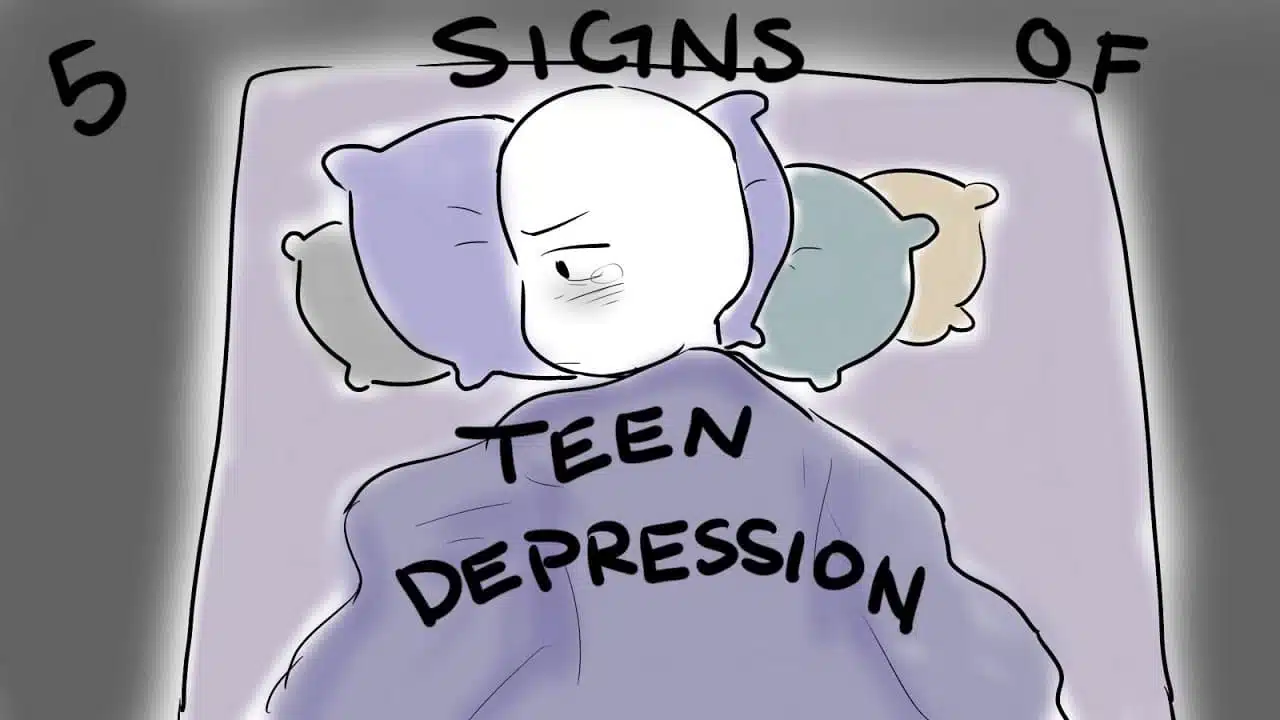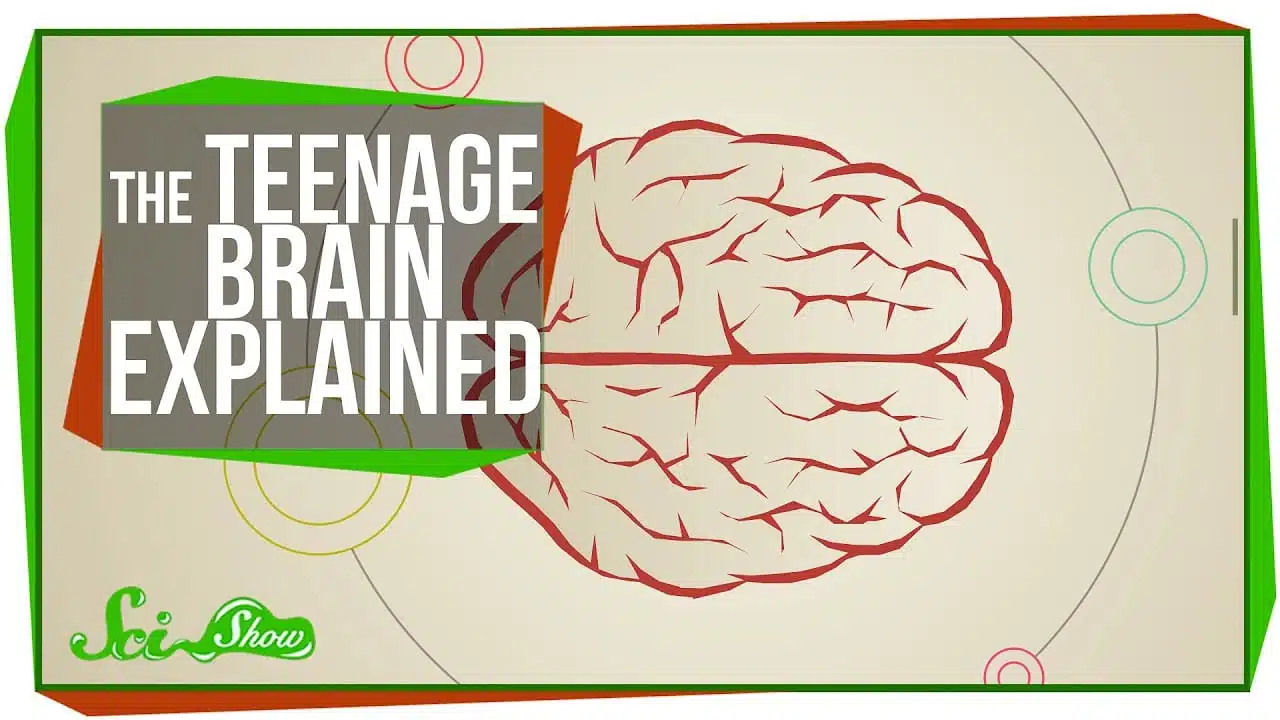
Anyone who has experienced depression knows that it can affect your everyday life, and can have serious consequences. This is especially true for teens. Teens are considered to be highly susceptible to depression. Teen depression can lead to prolonged suffering that can impact them well into adulthood. The distressing thing is that teen depression is incredibly common.
In fact, “The total number of teenagers who recently experienced depression increased 59% between 2007 and 2017.” When you add up all the data, 1 in 5 adolescents from all walks of life will suffer from depression at some point during their teen years.”
Unfortunately, when left untreated teen depression can worsen. It can even turn into a major depressive disorder. It impacts everything from relationships to school to work. It can even change how you feel, how much you sleep, and whether you can get out of bed in the morning. Tragically teen depression all too often ends in suicidal ideation, suicide attempts, or suicide. Increasing rates of teen depression are one of the main reasons that suicide is the second leading cause of death among 15-29-year-olds. What a scary statistic. Just more proof that teenage depression is a real issue and that you should take your child seriously if they say things like “I want to end it all” or “I can’t take this life anymore.”
The teenage years are full of uncertainty and stress. This is because teenagers are just working out who they are and what their place is in the world. When things don’t go as planned, it can be tough for teens to cope. This has been especially true since the Covid-19 pandemic. In fact, “throughout the Covid-19 pandemic youth ages, 11-17 have been more likely than any other age group to report moderate to severe symptoms of anxiety and depression.“
It is normal for teens to struggle with the ups and downs of teenage life. When those downs don’t bounce back, teens can sink into other mental health conditions like depression. If you are reading this article you may already have a hunch. It is important to trust your gut when it comes to your child, after all, you know them best. With that said, take a look at these teen depression signs and see if you recognize any of your child’s struggles.
Signs of Depression in Teens

Risk factors can be grouped into the following teen depression symptoms (click on each symptom to learn more):
Changes in Mood
Thinking Errors
Physical Symptoms
Impulse Control Issues
Changes From the Norm or Routine
Relationship Struggles
Suicide
While the symptoms listed above can indicate depression, there are other factors to consider for a more complete picture. Teens with a family history of depression or siblings who have struggled with it may be at a higher risk of experiencing a major depressive episode.
Atypical Depression Symptoms
Differences Between Depression in Teens and Adults
Teens often fail to get help with their depressive disorder on their own. They may not even know what kinds of help are out there. They rely on the adults in their life to advise them on what to do when depression knocks them off their feet. Adults often have access to resources that teens do not.
Teens may also present with different symptoms than adult depression.
Symptoms and Behaviors More Common in Depressed Teens
- Angry outbursts
- Irritability
- Unexplained aches and pains
- Headaches or stomach aches
- Emotionally sensitive
- Some social withdrawal but not completely isolating
- Tech addiction/phone addiction/excessive screen time
Depression can cause your son or daughter to feel overwhelmed, hopeless, and angry. Often teenagers don’t know how to cope with being overcome by this kind of sadness and can start to “act out” in the following ways:
- Risky behaviors
- Substance abuse
- Running away from home
- Skipping classes, poor school attendance, or school refusal
- Poor grades or decreased school performance
- Smoking a vape or cigarette
You Are Not Alone
ThreePeaks Ascent is there for you and your family.
Is It Depression or Normal Teenage Behavior?

Teens go through many ups and downs. They act out and can be moody at times. This is normal for teenagers, but major depression is not. Teens’ emotions can seem to fluctuate a lot as they go through the ups and downs of teenage life. Oftentimes, it may seem like a depressed teen has every reason to be happy and is still plagued with overwhelming sadness or numbness.
How Do You Know When it is a Problem?
Depression is a problem when the symptoms of depression affect your teen's life. Teen depression goes beyond normal teenage moodiness. Depression is a destructive force that can tear apart a young person’s personality. You may feel like you have lost them in a way.
If this goes on for more than two weeks then your child might be struggling with depression. So if your child is not going to school, is struggling with relationships, is unable to cope with the basic stressors in life, and/or is unable to find joy in activities they once enjoyed, it is time to start looking for resources that fit your child’s needs. If you are not sure if your son or daughter is truly depressed or just being a teenager ask yourself the following three questions.
- How long have the depression symptoms been going on?
- How bad are the depression symptoms?
- How are they acting differently from their normal self?
Is This Just a Phase?
How do you know that it isn’t just a phase with your teenager? Teens go through so many phases. It can seem like one minute they want to be a lacrosse superstar and the next they want to play in a band. These types of phases are normal development. They are just part of how teens try new things and figure out who they are.
As a parent, there are a couple of warning signs that can help you know when your teen is struggling with depression, rather than just going through a phase. One of the warning signs is that your teen is no longer taking joy in activities they once liked. Another indicator is that your teen is withdrawing socially. They could be spending more time by themselves. Many do so by obsessively spending time on their phones or playing video games. A third warning sign is that your teen is showing significant changes in their day-to-day life.
Warning signs that parents often see include sleeping more, missing school, failing classes, or quitting sports. These are all signs that your teen might be going through more than a phase and could be struggling with depression.
Teenagers who have a mental illness like depression need professional help! And they need more help than just being prescribed antidepressant medication for their depressed mood. Being depressed is not a fun experience, and if they could change it on their own they would. It is much more than a phase.
In fact, “Most adults with depressive illness recall their first episode as occurring in the teenage years, and prospective studies of youth suggest that first onset may be typical in early adolescence.” For adults who develop severe depression, it started in their teen years. So if your son or daughter is showing signs of depression it is important to get them the help that they need.
Treatment for teen depression can come in a variety of forms. One of the first, and least disruptive treatment options is talk therapy, usually cognitive behavioral therapy or dialectical behavior therapy. A mental health professional will engage in open conversations with your depressed teenager about their experiences, challenges, achievements, effective techniques, and coping mechanisms. The therapist may recommend exploring the advantages of adolescent psychiatry as a way to alleviate depressive symptoms in your teen.
If your teen's depression persists or worsens, or if it starts to affect other family members, you may want to consider intensive outpatient (IOP) therapy. IOP therapy means seeing a therapist more regularly, most likely multiple times per week.
Unfortunately, traditional talk therapy and IOP are often not enough to help some teens overcome their depression. If these methods aren’t working, it might be time to consider alternative long-term treatment options.
Why Nature-based Therapy?
Nature therapy is a treatment option that is particularly well-tailored for teens struggling with depression. Nature-based treatment programs combine professional mental health counseling with natural challenges, novel experiences, and powerful adventures to fast-track the healing process. Additionally, nature therapy programs are specifically designed for teens and their families. They allow teens to connect with and learn from other teens struggling with similar challenges. Overall, nature-based therapy has shown strong positive outcomes for teens including improved self-efficacy, increased resilience, and a more positive outlook on life.
How ThreePeaks Ascent Can Help
Nature therapy programs like ThreePeaks Ascent can be an effective depression treatment option for teens. For one thing, nature-based residential treatment removes teens from their environments and allows them to focus on improving themselves. A nature therapy program also provides the space and time for teens to process their feelings in a healthy way and under the supervision of health care professionals.
Programs like ThreePeaks Ascent use a dynamic approach that is research-based. ThreePeaks Ascent provides accurate teen mental health assessments, so you can be assured that your child is getting the help that they need. These therapeutic methods create an environment of growth and learning that will help get your teenager back on track and overcome their mental health conditions.
Exposure to novel environments and activities at nature therapy programs has also been shown to be an effective way to challenge teens. In this setting, teens have the chance to practice new coping strategies.
Further, overcoming seemingly impossible challenges, like summiting a large mountain, has been shown to improve resilience, grit, and self-efficacy. These are all critical elements to healthy teen development and are vital for overcoming feelings of hopelessness that accompany depression.
In all, nature therapy is a smart option for a teen who is showing symptoms of depression. Nature-based treatment’s unique environment provides customized treatment plans implemented by mental health professionals. If your teen struggles with depression, you might want to consider ThreePeaks Ascent as a treatment option.
Help for Depressed Teens
If your child is struggling with depression, it might be time to seek outside help. Teen depression is a serious condition and it is better to get on top of it early and help get your child back to living the kind of life that they’ve dreamed of. With the right support and counseling, your child and your family can overcome depression and look forward to a brighter future.
If you are considering professional counseling and think that our nature-based therapy program might be a good fit for your teen, reach out to the ThreePeaks admissions team. They are available any time to answer all of your questions. Give them a call today at 435-272-1280.
About ThreePeaks Ascent Nature-based Therapy Program
The ThreePeaks Ascent program is uniquely crafted to assist students and their families in creating lasting, life-long emotional changes through compassionate, intentional, research-backed, and safe nature-based therapy programs. The professionals at ThreePeaks Ascent understand individuals don’t come with instructions, and every student is unique, capable, and amazing in their own right.
Our program focuses on helping adolescents and their families through difficulties that occur when various behavioral, cognitive, or developmental issues are present. Research shows that engaging individuals on a personal level with strategic and intentional activities will aid in developing the tools and skills necessary to engage in life in a healthy and positive way.
Benefits of a Nature-Based Short-Term Residential Treatment Program
Being immersed in nature can have a profound impact on a teenager. It improves their mental, emotional, and physical well-being. Combined with a proven clinical approach, a therapeutic experience helps teens heal. Here are specific benefits your family can expect to see while your teen is in nature-based short-term residential treatment.
Additional References & Mental Health Resources
- National Suicide Prevention Lifeline
- SAMHSA National Helpline
- National Alliance on Mental Health
- Depression in Teens | Mental Health America
- The Upward Spiral: Using Neuroscience to Reverse the Course of Depression, One Small Change at a Time by Alex Korb PhD
- The New Mind-Body Science of Depression by Vladimir Maletic & Charles Raison
- Unstuck: Your Guide to the Seven-Stage Journey Out of Depression by James S. Gordon M.D.
- You Are Not Alone: The NAMI Guide to Navigating Mental Health―With Advice from Experts and Wisdom from Real People and Families

